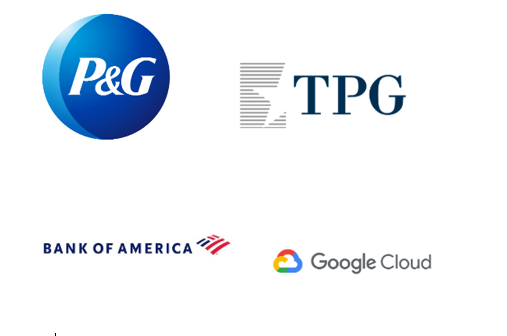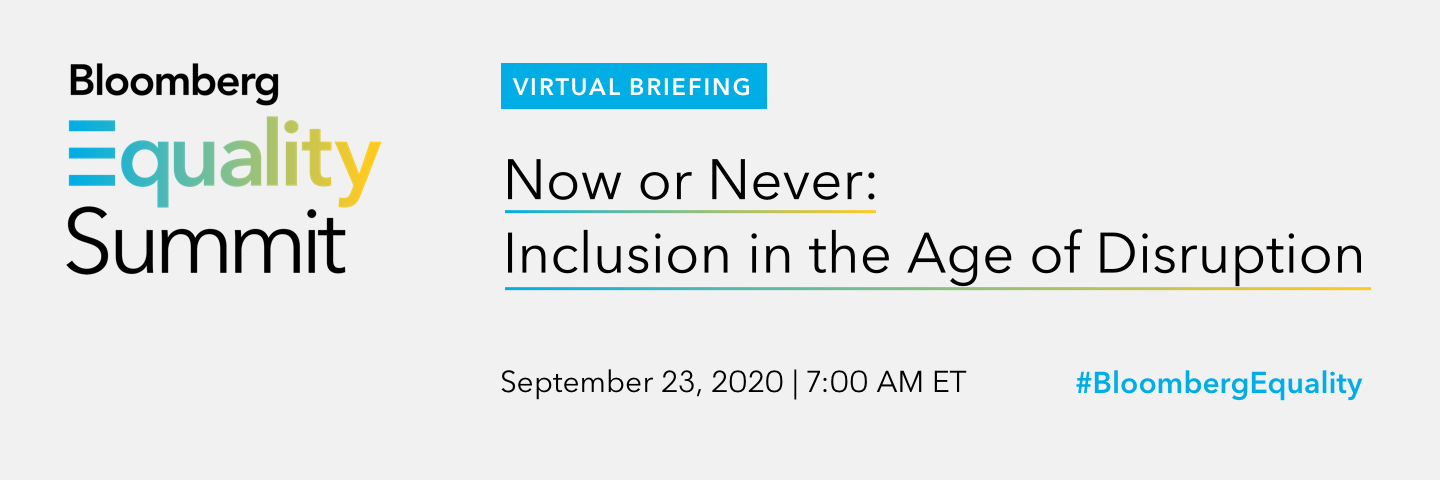
Key Takeaways
Bloomberg Equality Summit, September 23, 2020
By Bloomberg Live
The global economy and its citizens are confronting dual shocks: the deadly COVID-19 virus that has shuttered nations and exposed the disproportionate disparities in health and access to health care — all while researchers race to develop a vaccine. The second shock are the deaths of Ahmaud Arbery, Breonna Taylor and George Floyd, whose death involved four police officers in Minneapolis, setting off global protests against police brutality and a reckoning on race throughout all facets of society.
The unprecedented pandemic and protests come as the U.S. celebrates the centennial of women’s right to vote and the nation prepares for the 2020 presidential election. At the same time, Europe faces the harsh realities of a rise in fascism, while the UK prepares for its final countdown to Brexit.
Click here to view video of today’s event.
Speakers included:
-
- Anthony S. Fauci, M.D., Director, National Institute of Allergy and Infectious Diseases, U.S. National Institutes of Health
- Ed Bastian, CEO, Delta Air Lines
- The Honorable Hillary Rodham Clinton, 67th United States Secretary of State
- Alison Rose, Group CEO, NatWest Group
- Sanj Bhayro, VP Operations and Customer Growth, Google Cloud EMEA
- Brian Moynihan, Chairman & CEO, Bank of America
- Joanna Place, Chief Operating Officer, Bank of England
- Kehinde Andrews, Professor of Black Studies, Birmingham City University
- Katherine Franke, James L. Dohr Professor of Law, Columbia University
- Glenn C. Loury, Merton P. Stoltz Professor of the Social Sciences and Economics, Brown University
- Shu Nyatta, Managing Partner, SoftBank
- Jemma Wolfe, Head of Launch with GS, Goldman Sachs
- Anne B. Oxrider, Senior Vice President and Benefits Executive, Bank of America
- Alyssa Milano, Actress, Podcast Host, Author and Activist
- Chuck Robbins, Chairman & CEO, Cisco
- Shani Dhanda, Disability Specialist and Public Speaker
- Dominic Reid OBE, CEO, Invictus Games Foundation
- Jim Fitterling, Chairman & CEO, Dow
- Ursula M. Burns, Former Xerox Chairman & CEO
- Jon Winkelried, Co-CEO and Partner, TPG
- Kewsong Lee, CEO, The Carlyle Group
- Michael L. Lomax, Ph.D., President & CEO, UNCF
- Ruth J. Simmons, President, Prairie View A&M University
- LL Cool J, CEO & Founder, Rock The Bells, Hip-Hop Icon, Actor and Philanthropist
- Alicia Garza, Principal, Black Futures Lab & Co-Creator, #BlackLivesMatter
- Sunny Hostin, Emmy Award-winning Journalist and Co-Host, ABC’s The View
- Marvin Rees, Mayor of Bristol, Bristol Council
- John Legend, Multi-platinum Artist and Activist
- Marc Pritchard, Chief Brand Officer, P&G
- Sue Bird, Vice President, Women’s National Basketball Players Association; Professional Basketball Player, Seattle Storm
- Rosie Perez, Actress and Activist
Bloomberg moderators included:
-
- David M. Rubenstein, Co-Founder and Co-Executive Chairman, The Carlyle Group
- Ambassador Melanne Verveer, Co-Founder, Seneca Women
- David Westin, Anchor, Bloomberg Television
- Francine Lacqua, Anchor, Bloomberg Television
- Jacqueline Simmons, Senior Executive Editor, Americas, Bloomberg
- Mark Miller, Global Editor, Bloomberg Live
- Romaine Bostick, Anchor, Bloomberg Television
- Carol Massar, Co-Anchor, Bloomberg Businessweek Television and Radio
- Cynthia Koons, Senior Reporter, Bloomberg
- Pamela Hutchinson, Global Head of Diversity and Inclusion, Bloomberg L.P.
- Scarlet Fu, Anchor, Bloomberg Television
- Jason Kelly, Co-Anchor, Bloomberg Businessweek Television and Radio
- Sonali Basak, Financial Correspondent, Bloomberg
- Brett A. Pulley, Atlanta Bureau Chief, Bloomberg
- Shartia Brantley, Deputy New York Bureau Chief and Senior Editor, Bloomberg Live
- James E. Ellis, Assistant Managing Editor, Bloomberg Businessweek
- Mallika Kapur, Deputy Global Editor, Bloomberg Live
- Jordyn Holman, Reporter, Bloomberg
- Chris Michel, Americas Head of Diversity & Inclusion, Bloomberg L.P.
Key Takeaways:
1. In the first hour of the Bloomberg Equality Summit, we hosted a conversation between The Honorable Hillary Rodham Clinton, 67th United States Secretary of State, and Ambassador Melanne Verveer, Co-Founder, Seneca Women. The topic? The legacy of Ruth Bader Ginsburg. As tributes pour in to honor the second woman ever to be appointed to the U.S. Supreme Court, President Trump says he will nominate her replacement within days. Clinton cited Ginsburg’s reported last wish — that the seat she had held since 1993 remain vacant until the U.S. presidential election takes place in November 2020. “She was offering a measured opinion that’s in the best interest of the country and the Court to let the election go forward,” said Clinton. Clinton said the Republican rush to fill Ginsburg’s seat on the Supreme Court could spell the end of Obamacare, but she opposes increasing the size of the Court in response. She said that is “a step too far,” at least for now.
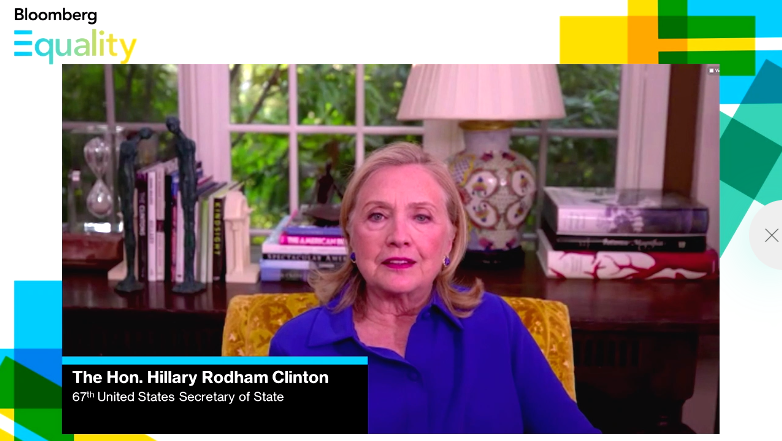
Earlier, we kicked off the summit with an important conversation between Dr. Anthony S. Fauci, M.D., Director, National Institute of Allergy and Infectious Diseases, U.S. National Institutes of Health, and David M. Rubenstein, Co-Founder and Co-Executive Chairman, The Carlyle Group. Rubenstein asked the question on everyone’s mind: When can we expect a vaccine for the coronavirus? Fauci said, “By the end of 2020, namely November or December, I feel reasonably confident there will be one or more vaccines that will be made available to the American public.” Responding to a question about the disproportionate impact the pandemic has had on minority communities, Fauci agreed it’s been a “double whammy” for this group. First, because of the nature of many of their jobs, and second, because of a higher prevalence of underlying health conditions. When a vaccine does become available, Fauci said minority groups will likely be given priority — but front-line workers will come first. “Almost certainly, the priority will be the front-line workers. The people such as the health care providers who put themselves at risk. But, close behind them, will very likely be people who could benefit the most and, almost certainly, that would include minorities,” Fauci said.
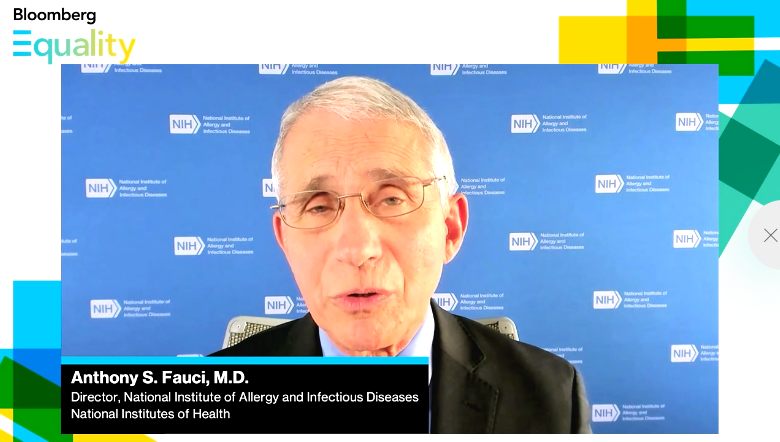
2. Brian Moynihan, CEO of Bank of America, was in ongoing discussions on the organization’s equality initiatives when George Floyd was murdered. The incident spurred Moynihan to lengthen the initiatives and double the company’s investment. In conversation with Bloomberg’s David Westin, Moynihan also shared how diversity is something that is measured and improved upon at every level of the organization. But inclusion is a feeling that is harder to measure. Rather than bring in consultants to help create a new inclusion measure, Moynihan’s team simply asked colleagues to think of what makes them feel included. The overwhelming answer was being able to bring your true self to work. (Bank of America is a sponsor of the Bloomberg Equality Summit.)
3. Bloomberg’s Mark Miller engaged in a lively discussion with Kehinde Andrews, Professor of Black Studies, Birmingham City University; Katherine Franke, James L. Dohr Professor of Law, Columbia University; and Glenn C. Loury, Merton P. Stoltz Professor of the Social Sciences and Economics, Brown University. The professors debated the subject of reparations for slavery. Andrews and Franke were pro-reparations, arguing that it is a legal rather than a moral issue and that we are still living with the effects of intergenerational debt. Loury argued that Americans must not further divide ourselves by race and bargain with each other across the table, a situation he posited would be a gift to the reactionary right wing in the U.S.
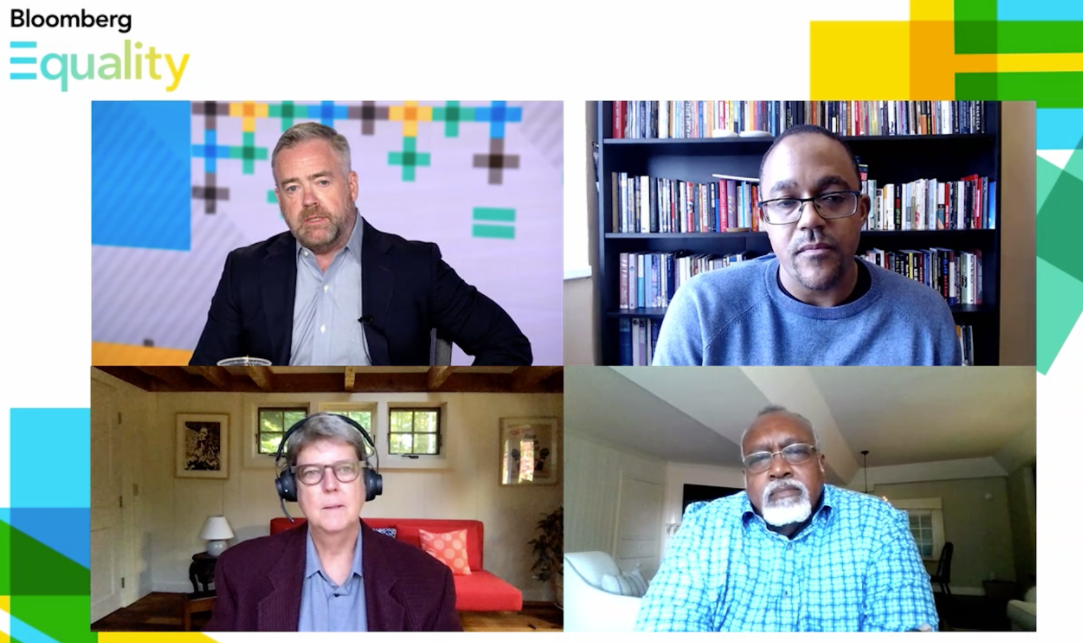
4. In an interview between actress Alyssa Milano and Carol Massar, Co-Anchor, Bloomberg Businessweek Television and Radio, Milano described the huge anxiety she felt after the birth of her first child. Shortly after the traumatic birth of her child, “The nurse came to me and said that I was 38 and so I should start thinking about having my next child. And I felt like, ‘look, I don’t even know if I want the child I have.’ My parents were very supportive, but because my mother had her own mental health issues, they were of the school of thought that I should just buck up,” Milano said. “I think once we start calling it mental illness, that’s when the stigma comes with that. I believe this should be as common as going to the dentist. I discuss it with my children and we call it the feelings doctor. So I say, ‘you will get a check-up, plus get your teeth checked and have your feelings checked.’” Milano finished by offering words of hope to those suffering mental health problems: “Conversations like this give me hope, my family gives me hope. My grandmother hasn’t left the house in 32 years, and I will give my children all the tools to break this generational trauma — and I have hope that every family will do that. So that they can take care of their mind in the same way you take care of your body.”
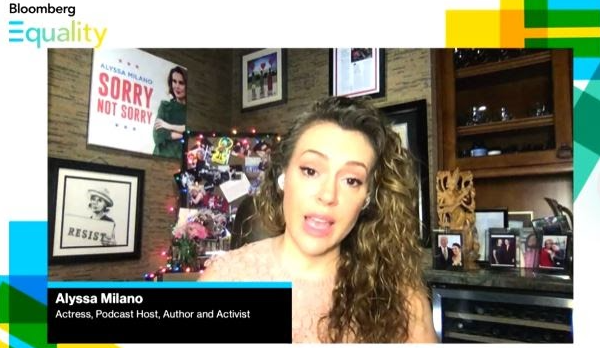
5. In a panel discussion between Shani Dhanda, disability specialist and public speaker, and Dominic Reid OBE, CEO of the Invictus Games Foundation, Bloomberg’s Head of Diversity and Inclusion Pamela Hutchinson spoke of the importance of hiring workers with disabilities and the power of sports. “This isn’t about saying we need to find a job for these poor people,” Reid said. This is saying that these guys are great and you should hire them. If you have someone with a prosthetic leg then that comes with a determination. You shouldn’t hire people just because they are disabled but because they are extraordinary people.” Dhanda said, “Do consider that untapped talent. We are so resilient and motivated. I believe my disability is my superpower.”
6. Companies with no Black directors are under pressure to diversify after a summer of unrest related to the killing of George Floyd. Bloomberg spoke with two corporate leaders who are on the forefront of pushing for more C-suite and board diversity. Ursula M. Burns, Former Xerox Chairman & CEO, created the Board Diversity Action Alliance, which aims to encourage more companies to appoint a first Black director or add more. Burns told Bloomberg’s Jason Kelly, “One of the reasons why it’s very important to have diversity on the board is so this question doesn’t get pushed out of the boardroom. It’s not the responsibility of the diverse board member to bring it up, but it’s really hard to have a diverse board member and not have the topic happen.” Jon Winkelried, Co-CEO and Partner, TPG, has been setting the standard in the private equity industry in pushing for more diversity both within its firm and among its portfolio companies. (TPG is a sponsor of the Bloomberg Equality Summit.) On that topic, Winkelried said, “I’ve had more calls with CEOs of our companies that really want to get underneath these issues. I think it’s not yet in balance, but it is moving in the right direction.”
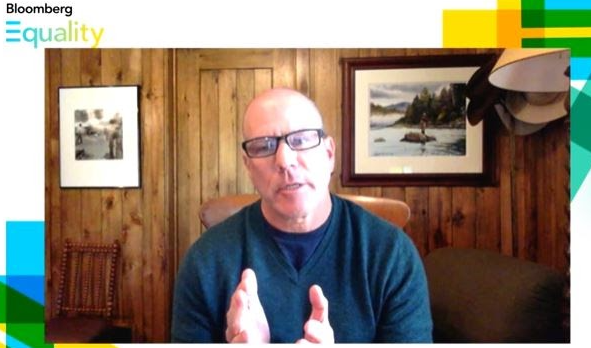
7. Hip-Hop Icon LL Cool J, CEO & Founder, Rock The Bells, spoke with Shartia Brantley, Deputy New York Bureau Chief and Senior Editor, Bloomberg Live, about representation in music and the latest incidents around racial injustice across the country. He said, “As a Black man in America, I’m encouraged by so many people that are on the right side of history and looking at this these times the right way.” He added that he’s excited about how younger voices are leveraging new platforms. “The community that cares about justice is multigenerational,” he said. “Social media is doing for the world what the news did for the world in the ’60s.” In the wake of the killing of George Floyd, the musician and actor released a rap about the incident and #BlackLivesMatter that went viral. Why did he do it? “People needed to know where I stand.” Adding, “I’m not going to be painted in a corner. I’m not the guy that’s out here trying to demonize White people. I don’t move like that. That’s not my style. This is about those that are in the wrong, and they know who they are.”
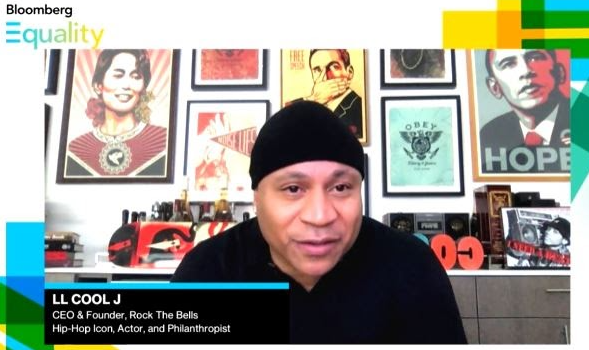
8. P&G Chief Brand Officer Marc Pritchard said the company is looking at every product in its portfolio to address any biased messaging. When asked if he would stop selling controversial skin-lightening creams, so-called fairness creams, that may perpetuate racist stereotypes, he said that P&G (a sponsor of the Bloomberg Equality Summit), “at minimum” would examine whether they should be renamed. “Because in some cases, in some markets of the world, what you’re trying to do is just improve the tone of the skin,” he said. “But if you say that in such a way that that seems to generate a judgment, then that’s not right.” Pritchard also weighed in on comments made by Wells Fargo Chief Executive Officer Charlie Scharf on the limited Black talent pool. “It’s a myth. It’s untrue — it’s absolutely inaccurate,” Pritchard said. “I’ve heard that before and the reality is there are talented people out there. There are talented Black people, brown people and Asian people.” Bloomberg Live Deputy Global Editor Mallika Kapur asked artist and activist John Legend whether he had ever received “the look” — the look of suspicion and distrust Black men in particular may receive from fellow shoppers or store clerks or co-workers — before he became famous. “The Look” is also the name of a well-known P&G commercial urging people to see beyond stereotypes and to confront their own biases. “Absolutely I’ve been given ‘the look,’” Legend said. “And sometimes it’s so subtle, but you’re reminded in various ways that you have to prove that you belong in certain spaces. …This is the kind of thing that causes pain that causes even death in the Black community, and it’s a constant source of stress for us that we have to navigate. This kind of, you know, obstacle course of making sure we don’t scare anybody or make anybody feel uncomfortable.”
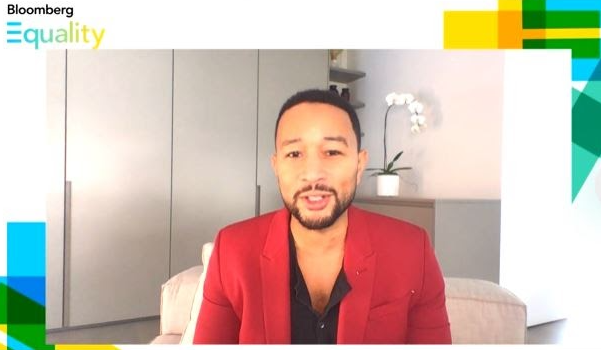
9. Bloomberg Businessweek’s James Ellis spoke with #BlackLivesMatter co-creator Alicia Garza about the origins of the organization and whether she believed at the time it would become the potent social force that it is today. She said she hadn’t, but “frankly it’s important this movement has grown in such powerful ways. We didn’t start this in a boardroom, there were no graphs and charts. It was an idea whose time had come.” Ellis asked Garza about “diversity fatigue” — the wish by some that we just move on from these uncomfortable conversations. “I will say I’m tired of talking about it, too,” Garza said. “I think a lot of us are and it’s not going to go away unless we address it. You know, my mom used to say to me that sometimes the only way out is through, and I think that that is what we’re facing right now. The fact that so many people may feel like they’re being forced to have this conversation over and over again is really because, you know, we’re not addressing the disparities that exist and that impact people’s everyday lives.”
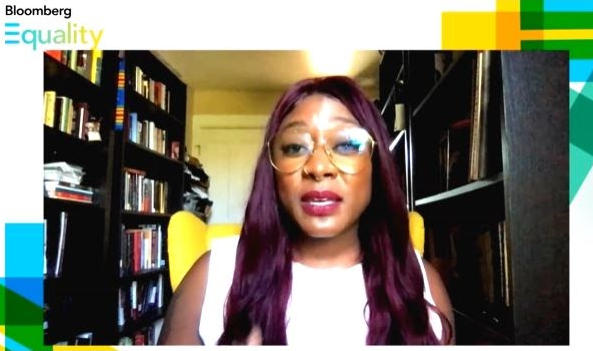
——————————
Join the Conversation: #BloombergEquality
Instagram: @BloombergLive
LinkedIn: Bloomberg Live
Twitter: @BloombergLive
Interested in more Bloomberg Live virtual events? Sign up here to get alerts.
——————————
